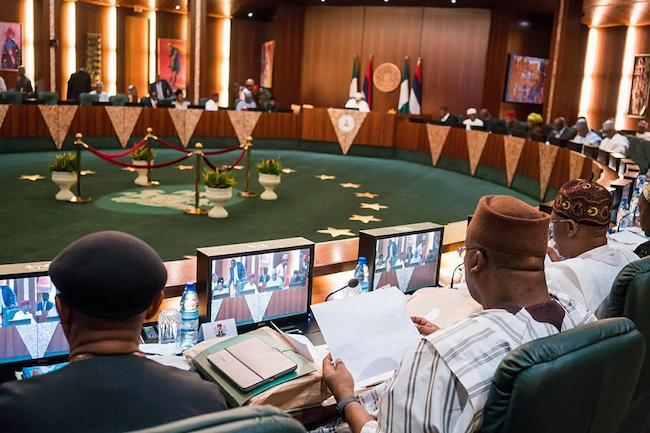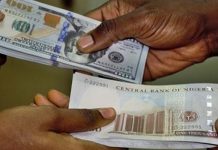The Federal Executive Council (FEC) has granted approval for the 2011-2025 National Development Plan (NDP) with an investment size of N348.7 trillion.
The approval of the NDP came on Wednesday at the weekly meeting which was presided over by Vice-President, Yemi Osinbajo.
The Minister of Finance, Budget and National Planning, Zainab Ahmed, who briefed journalists after the council meeting in Abuja, stated that the plan is structured on economic growth and development, infrastructure, public administration, human capital development, social development and regional development.
Speaking on the size of the investment, Ahmed noted that the public sector will provide N49.7 trillion while the private sector will contribute N298.3 trillion to the development plan.
She added that the funding strategy includes broadening the tax base and expanding the capacity of the private sector through creating investment opportunities and delivering quality engagements and incentives.
“Today, the ministry of finance, budget and national planning presented a memorandum to council, requesting for approval of national development plan for 2021-2025 which is a plan that is succeeding the Economic Recovery and Growth Plan (ERGP) which will expire in December 2021.
“This national development plan we call NDP for short is structured around six concepts, and these concepts include economic growth and development, infrastructure, public administration, human capital development, social development and regional development.
“This also says that the part… by a micro-economy framework which projects average GDP growth of five percent over a five-year period and also the plan has been costed to have an investment size of N348.7 trillion over five years.
“This investment size is to be contributed by the public sector at N49.7 trillion representing 14.3% and the private sector at N298.3 representing 85.7%.
“Also the public sector expenditure component of N49.7 trillion will be contributed by the federal government as well as the states.
READ ALSO: Nigeria To Organize Investment, Security Summit In Paris – Garba Shehu
“The federal government expenditure component is N29.6 trillion representing 8.5% of the total expenditure size while the state governments will contribute N20.1 trillion representing 5.8%.
Speaking further on the funding strategy for the plan, Ahmed said the federal government will broaden the tax base and expand the capacity of the private sector through creating investment opportunities and delivering quality engagements and incentives.
“Also exploring domestic and concession financing sources and strengthening and setting up financial investments vehicles and public-private partnership as well as the Nigerian investment etc,” she added.
“The plan requires the establishment of a strong implementation mechanism and framework that promotes performance and accountability, which is necessary for the implementation of the plan.
“There will also be a development plan implementation unit that will report to the National steering committee which will be headed by Vice-President with the ministers of finance, budget and national planning as vice-chair.
“The establishment of the plan development implementation will be in the planning arm of the ministry to ensure that the ministries, departments and agencies, state governments and private sector organizations are all working in a coordinated fashion.
“The plan also has a specific concentration to deliver within the five year- period, and immediately we get this plan launched, we will be continuing to work on Nigeria Agenda 2050. And this is to make sure we don’t have a crisis going forward.”
On his part, Clement Agba, minister of state for national planning, said in coming up with the NDP, the government took into consideration the criticisms that trailed the NDP, including the fact that it was not inclusive enough.
“In going into this plan, we took a look at the previous plan, that is ERGP, with a view to seeing what the criticisms were; what did we do well? And one of the downsides that we learnt from the ERGP or complaints that came from people was that: it wasn’t inclusive enough, it wasn’t participatory enough, and that people saw it as a federal government plan,” he said.
“So, deliberately, for this National Development Plan 2021-2025, the issue of no one being left behind was key. We have to make sure it’s national enough. That is to say that it should be prepared by the federal government, state governments, local governments, and more importantly, the organised private sector.
“That is why in terms of governance structure that was approved by Mr President, we have two co-chairs. One is from the private sector, Mr Atedo Peterside, and one from the public sector, my sister, Dr Zainab Ahmed.”
















